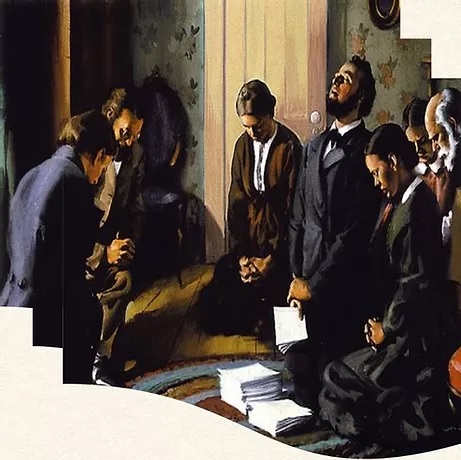Most of the founders of Seventh-day Advitism would not be able to join the church today.

Most of the founders of Seventh-day Adventism would not be able to join the church today if they had to subscribe to the denomination's Fundamental Beliefs. More specifically, most would not be able to agree to belief number 2, which deals with the doctrine of the Trinity.
For Joseph Bates the Trinity was an unscriptural doctrine, for James White it was that "old Trinitarian absurdity", and for M. E. Cornell it was a fruit of the great apostasy, along with such false doctrines as Sunday-keeping and the immortality of the soul.
In like manner, most of the founders of Seventh-day Adventism would have trouble with fundamental belief number 4, which holds that Jesus is both eternal and truly God. For J. N. Andrews "the Son of God ... had God for His Father, and did, at some point in the eternity of the past, have beginning of days."
And E. J. Waggoner, of Minneapolis 1888 fame, penned in 1890 that "there was a time when Christ proceeded forth and came from God,...but that time was so far back in the days of eternity that to finite comprehension it is practically without beginning."
Neither could most of the leading Adventists have agreed with fundamental belief number 5, which implies the personhood of the Holy Spirit. Uriah Smith, for example, not only was anti- Trinitarian and semi-Arian, like so many of his colleagues, but also like them pictured the Holy Spirit as "that divine, mysterious emanation through which They [the Father and the Son] carry forward their great and infinite work." On another occasion, Smith pictured the Holy Spirit as a "divine influence" and not a "person like the Father and the Son."
